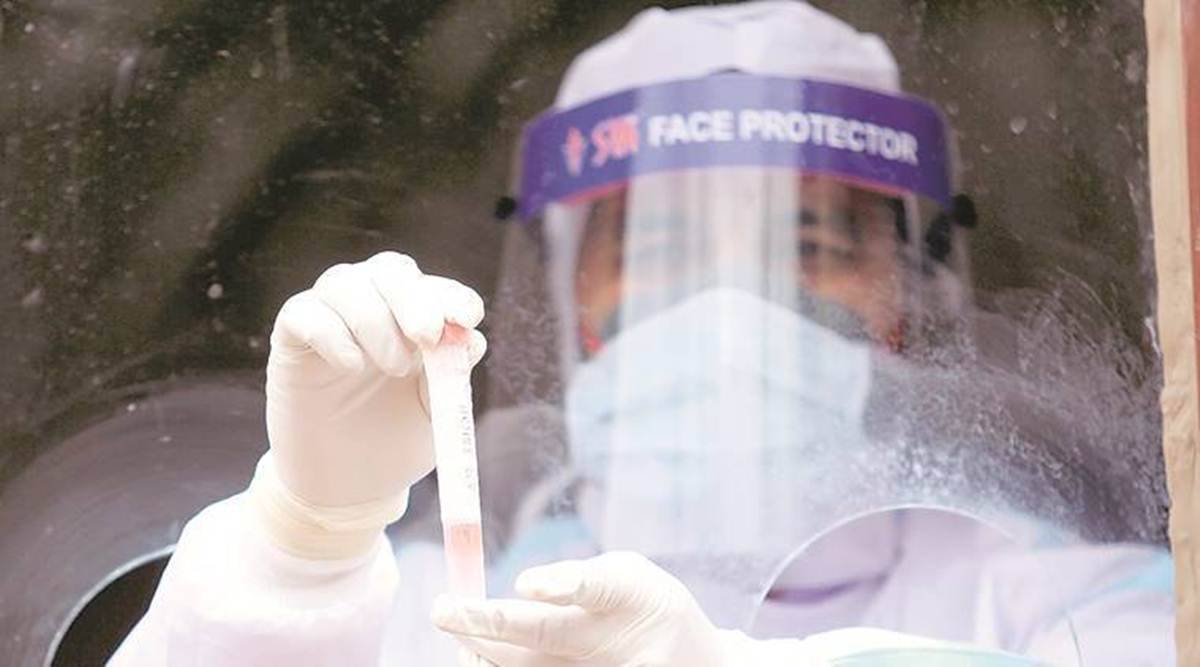 The Department of Virology will soon be procuring equipment for Covid genome sequencing to detect variants, and how the virus is mutating and evolving, so that adequate measures can be taken. (Representational Image)
The Department of Virology will soon be procuring equipment for Covid genome sequencing to detect variants, and how the virus is mutating and evolving, so that adequate measures can be taken. (Representational Image) WITH a constant decline in the number of new COVID-19 cases in the last one month, many are choosing to travel, with most airlines and many Indian states asking either for a two-dose vaccination certificate or a negative RT-PCR test, which should be not more than 72 hours old. While the private laboratories are giving the result of the test in 24 hours, there have been complaints about delay in reports at government facilities.
This week, a resident of Sector 36, Chandigarh, had to travel to Srinagar, which required a 72-hour RT-PCR report and got the test done at GMSH-16 on August 1, with the assurance that they would receive an SMS report by August 3, the day of their flight. While their flight landed in Srinagar at 4 pm on August 3, they did not receive the report and had to get a rapid antigen at the Srinagar airport. The resident says there was last-minute panic, and he questioned the efficiency of a government test report and he wishes he had opted for a paid test at a private lab, as they provide results in 24 hours, and it would have saved them a last-minute test at the airport.
On average, in the last fortnight the number of COVID-19 tests being conducted are now between 1,200 to 1,500, with the pressure of testing easing in government labs. According to Dr V K Nagpal, Medical Superintendent, GMSH 16 and Joint Director, Health, the hospital is a collection centre, and the samples for testing are sent to PGI and GMCH-32, with most reports given within 24 hours and the delays are few, may be due to a technical reason. During the peak of the pandemic, says Dr Nagpal, samples were being sent to private labs for testing, to ease the pressure on the facilities and also to get the reports on time, so that people could be traced and treated at the earliest to check the spread of infection.
“Most of the testing these days is being done for travel purposes, as people are not coming for testing, though we have eight mobile teams in various parts of the city for testing, and all our dispensaries and health centres are also offering COVID-19 testing. We are giving the reports for Rapid Antigen, but not RT-PCR. All patients in our OPDs are being tested, as are those coming for surgeries. Covid is down, but not out, and I urge people to come forward to not ignore any symptoms and come for tests, for we have to be safe,” says Dr. Nagpal.
A representative of a private lab confirms that the maximum number of people opting for a COVID-19 test are students who have to travel abroad and people who have to go to states where a negative RT-PCR report is mandatory.
“As the rush is much less than what it was in May and June, we are able to give a report within 24 hours.”
Dr Mini P Singh, Department of Virology, PGIMER, says that while the pressure of testing was very high during the second wave, the institute now has a high-capacity lab and infrastructure to test about 4,000 samples a day. The doctor says they have now established a completely different COVID-19 lab, with new machines from ICMR, and also seven extra machines for RT-PCR testing and additional trained manpower.
The Department of Virology will soon be procuring equipment for Covid genome sequencing to detect variants, and how the virus is mutating and evolving, so that adequate measures can be taken.
- The Indian Express website has been rated GREEN for its credibility and trustworthiness by Newsguard, a global service that rates news sources for their journalistic standards.

